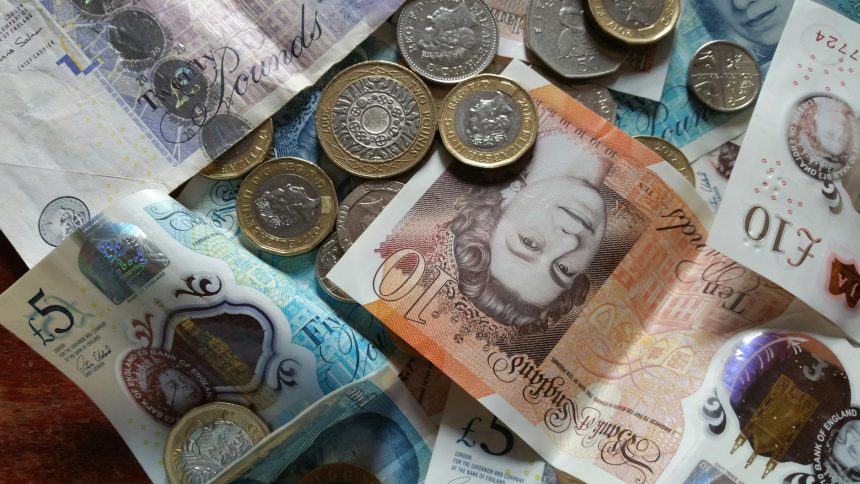currency-used-in-the-united-kingdom
Currency Used in the United Kingdom? Your 2025 Guide
Planning a trip to the UK or simply curious about its financial landscape? Understanding the official currency used in the United Kingdom is essential for seamless travel and transactions. Forget guesswork; this comprehensive guide will walk you through everything you need to know about British money, from its iconic banknotes to regional variations and practical spending tips.
Understanding the Official Currency Used in the United Kingdom
The United Kingdom boasts a rich history, and its currency is no exception. While the UK is part of Europe, it does not use the Euro. Instead, it maintains its own distinct monetary system.
What is the Pound Sterling (GBP)?
The official currency of the United Kingdom is the Pound Sterling, often referred to simply as “the Pound.” Its international currency code is GBP (Great British Pound), and its symbol is £. One Pound Sterling is divided into 100 pence (p).
The Pound Sterling is one of the world’s oldest currencies still in use, reflecting centuries of economic stability and influence. It is a fully convertible currency, widely traded on global markets.
A Brief History of British Currency
The history of the Pound Sterling dates back to Anglo-Saxon times. Over the centuries, it has evolved significantly, from its origins as a unit of weight in silver to the modern polymer banknotes we see today. The Bank of England plays a crucial role in issuing banknotes for England and Wales, ensuring their authenticity and security.
Navigating the Denominations of UK Money
When you handle UK money, you’ll encounter a variety of banknotes and coins, each with distinct features. Familiarizing yourself with these denominations will make your transactions much smoother.
Banknotes: What to Expect
UK banknotes are known for their vibrant designs and security features. Currently, all new banknotes issued by the Bank of England are made from polymer, which makes them more durable and harder to counterfeit. The common denominations are:
- £5 note: Features Winston Churchill.
- £10 note: Features Jane Austen.
- £20 note: Features J.M.W. Turner.
- £50 note: Features Alan Turing.
These notes are legal tender throughout England and Wales. While older paper notes are gradually being withdrawn from circulation, some may still be accepted for a limited time or exchanged at banks.
Coins: A Closer Look at Pence and Pounds
British coinage consists of both pence and pound denominations. These metallic pieces are easily identifiable by their size, shape, and the iconic designs on their reverse.
The common coins in circulation are:
- 1p (one pence)
- 2p (two pence)
- 5p (five pence)
- 10p (ten pence)
- 20p (twenty pence)
- 50p (fifty pence)
- £1 (one pound)
- £2 (two pounds)
The £1 coin, in particular, has a distinctive 12-sided shape and bimetallic construction, enhancing its security against counterfeiting. All coins feature Queen Elizabeth II or King Charles III on the obverse side.
Regional Banknotes: Scotland and Northern Ireland
One unique aspect of the currency used in the United Kingdom is the existence of banknotes issued by commercial banks in Scotland and Northern Ireland. While these notes look different, their value is the same as Bank of England notes.
Are Scottish Banknotes Accepted Everywhere?
Scottish banknotes are issued by three major banks: the Bank of Scotland, Clydesdale Bank, and Royal Bank of Scotland. They are legal currency throughout the UK, but businesses outside of Scotland, particularly in England, may occasionally hesitate to accept them. This is often due to unfamiliarity rather than an issue of legality.
If you receive Scottish notes, it’s generally best to use them while in Scotland. Alternatively, you can exchange them at a bank in England if you encounter any difficulties, though it’s rarely a major problem.
Understanding Northern Irish Currency
Similarly, in Northern Ireland, four banks issue their own banknotes: Bank of Ireland, Danske Bank, Ulster Bank, and AIB. Like Scottish notes, these are valid throughout the UK but might face occasional acceptance issues outside Northern Ireland. It’s advisable to spend them locally or exchange them at a bank if needed.
Practical Tips for Managing Your Money in the United Kingdom
Whether you’re visiting for leisure or business, managing your finances effectively in the UK will enhance your experience. Here are some key tips.
Exchanging Currency and ATM Usage
You can exchange your home currency for Pounds Sterling at airports, major banks, and dedicated currency exchange bureaus. However, often the most convenient and cost-effective method is to withdraw cash directly from an ATM using your debit or credit card. ATMs (known as “cash machines” in the UK) are widely available, and most do not charge a direct fee for withdrawals, though your home bank might.
Always inform your bank of your travel plans to avoid card suspension due to unusual activity. Look for ATMs displaying the LINK symbol, indicating they are part of the UK’s largest ATM network.
Digital Payments and Contactless Options
The UK is a leader in digital and contactless payment technology. Credit and debit cards are accepted almost everywhere, from small shops to large department stores. Contactless payments (tapping your card or mobile device) are incredibly common for transactions under £100, offering speed and convenience.
Mobile payment apps like Apple Pay and Google Pay are also widely supported. Carrying a small amount of cash is always a good idea for very small purchases or in emergencies, but you’ll find card payments are the norm.
Budgeting for Your UK Trip
When planning your budget, remember that the cost of living can vary significantly across the UK. London, for example, is notoriously expensive compared to other cities and rural areas. Consider these points:
- Accommodation: Book in advance, especially in popular areas.
- Food: Eating out can be pricey; consider self-catering options or supermarket meals.
- Transport: Public transport is efficient but can add up. Look into travel passes.
- Attractions: Many museums offer free entry, but major attractions often have fees.
A good resource for general travel advice to the UK can be found on the GOV.UK website.
Common Questions About the Currency Used in the United Kingdom
Visitors often have specific questions about UK money. Let’s address some of the most frequent queries.
Is the Euro Accepted in the UK?
No, the Euro is not the official currency used in the United Kingdom and is generally not accepted for everyday transactions. While some large tourist-oriented businesses in major cities might accept Euros, it’s rare, and you’ll likely receive a poor exchange rate. It’s always best to use Pound Sterling.
What About Older Banknotes and Coins?
The Bank of England regularly updates its banknote designs for security and durability. When older series of notes or coins are withdrawn, they cease to be legal tender. However, the Bank of England will always exchange its old paper notes for new ones. For older coins, banks might exchange them for a limited period after withdrawal, but it’s not guaranteed.
Conclusion: Your Guide to UK Currency
Understanding the currency used in the United Kingdom, the Pound Sterling (GBP), is key to a smooth and enjoyable visit. From its distinctive banknotes and coins to regional variations and the prevalence of digital payments, the UK offers a modern and efficient financial system. By familiarizing yourself with these aspects, you’re well-prepared to navigate all your transactions with confidence.
Share your UK currency experiences in the comments below!
Discover everything about the currency used in the United Kingdom, Pound Sterling (GBP). This 2025 guide covers banknotes, coins, regional variations, and essential money tips for your UK trip.
Featured image provided by Pexels — photo by Alaur Rahman









